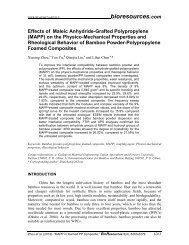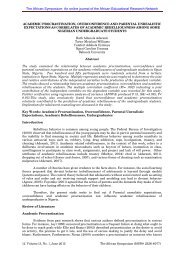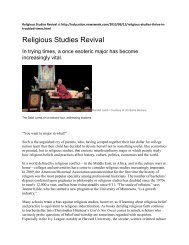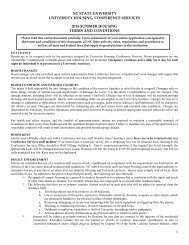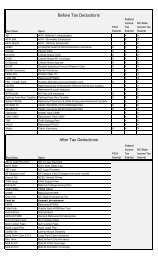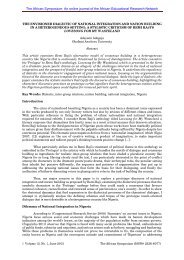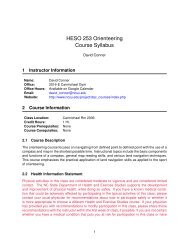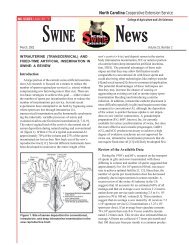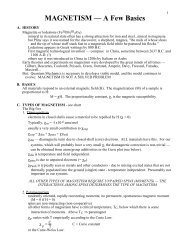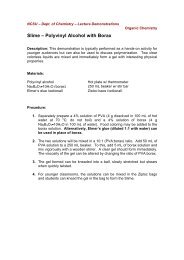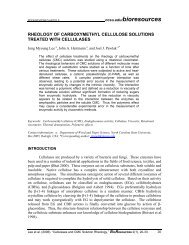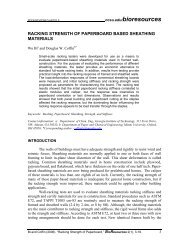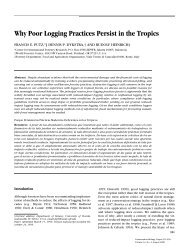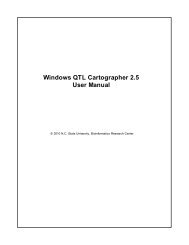Dictators, Songwriters, and the Negotiation of Censorship
Dictators, Songwriters, and the Negotiation of Censorship
Dictators, Songwriters, and the Negotiation of Censorship
You also want an ePaper? Increase the reach of your titles
YUMPU automatically turns print PDFs into web optimized ePapers that Google loves.
querida Alicia.<br />
Starmakers: <strong>Dictators</strong>, <strong>Songwriters</strong>...<br />
Se acabó ese juego que te hacía feliz. 30<br />
(Bicicleta, complete text).<br />
Though expressed in a very subtle <strong>and</strong> indirect way, <strong>the</strong> lyrics<br />
never<strong>the</strong>less suggest a series <strong>of</strong> complex ideas. First, <strong>the</strong> scene <strong>of</strong> <strong>the</strong> action<br />
is located geographically <strong>and</strong> conceptually—indicating <strong>the</strong> “país.” Second, a<br />
tacit comparison is made between Argentina <strong>and</strong> o<strong>the</strong>r countries, as well as<br />
between present-day Argentina <strong>and</strong> its past, characterizing <strong>the</strong> nation’s<br />
here <strong>and</strong> now as a place with a reality so hard that it approximates <strong>the</strong><br />
unreal. Finally, a list <strong>of</strong> abuses <strong>of</strong> <strong>the</strong> regime is given.<br />
Although intertextuality between <strong>the</strong> song <strong>and</strong> <strong>the</strong> well-known<br />
fiction by Carroll establishes <strong>the</strong> place <strong>of</strong> <strong>the</strong> action as imaginary, as<br />
mentioned, <strong>the</strong> omission <strong>of</strong> “de las maravillas” <strong>the</strong>n casts doubt on <strong>the</strong><br />
title’s referent. A strong suggestion <strong>of</strong> <strong>the</strong> <strong>the</strong>me <strong>of</strong> exile in <strong>the</strong> first few<br />
lines <strong>the</strong>n calls up Argentina as <strong>the</strong> possible scene: “[t]e vas a ir, vas a salir /<br />
pero te quedas / ¿dónde más vas a ir?” (ll. 3-5). The trope <strong>of</strong> “leaving”<br />
localizes this unknown l<strong>and</strong>, tying <strong>the</strong> narration to <strong>the</strong> local scene, where<br />
during <strong>the</strong> Proceso, “irse” was a common topic <strong>of</strong> conversation <strong>and</strong> even <strong>of</strong><br />
songs; an earlier Serú Girán song complains, “[s]e está yendo todo el<br />
mundo” (“Autos, jets, aviones, barcos,” ll. 2). In addition, it is later<br />
explained that “[e]stamos en la tierra de nadie (pero es mía),” <strong>the</strong> first<br />
person singular <strong>and</strong> plural fur<strong>the</strong>r associating “el país” with <strong>the</strong> speaker’s<br />
home country <strong>of</strong> Argentina (ll. 17).<br />
The reference to leaving or staying (“¿dónde más vas a ir?”) also<br />
introduces <strong>the</strong> <strong>the</strong>me <strong>of</strong> outside/inside, opening <strong>the</strong> way for a comparison<br />
<strong>of</strong> this place to o<strong>the</strong>rs. This is certainly not a Wonderl<strong>and</strong>, but ra<strong>the</strong>r a l<strong>and</strong><br />
<strong>of</strong> hard reality, where “el trabalenguas traba lenguas,” <strong>and</strong> “el asesino te<br />
asesina” (ll. 7-8). It is perhaps not <strong>the</strong> place one would choose to be: “[s]e<br />
acabó ese juego que te hacía feliz” (ll. 10). Argentina’s past is also evoked,<br />
<strong>and</strong> juxtaposed with <strong>the</strong> current state <strong>of</strong> affairs: “[e]l sueño acabó; ya no<br />
69



